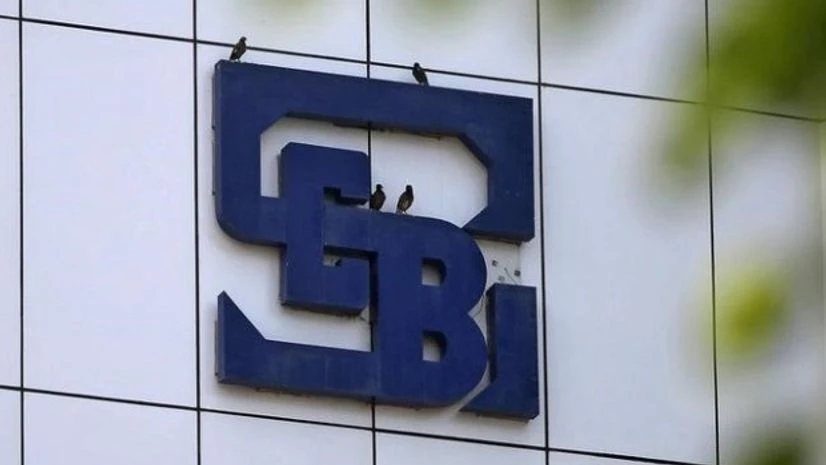The Securities and Exchange Board of India (Sebi)'s move to curb algorithmic trading on stock exchanges seems to have split Dalal Street. While the large volume drivers are against the curbs, a large number of smaller brokers, the majority, are in favour of the Sebi move to slow down and introduce safeguards here. Sebi-registered investor associations, representing the smaller ones, have also welcomed the move.
Last month, Sebi put out a discussion paper, seeking comments from investors, market infrastructure institutions and intermediaries "to explore and address concerns relating to market quality, market integrity and fairness due to increased usage of algorithmic trading & co-location" in the securities market. The paper says more than 80 per cent of orders placed on most of the exchange traded products are generated by algorithms and such orders contribute to approximately 40 per cent of the trades on the exchanges. It had sought comments on seven moves, including speed bumps, batch auctions and order randomisation. Five of these seven had been proposed or tried in other jurisdictions such the US, UK and Australia. Some of the methods are also being used in Indian markets in specific segments, the paper said (see table).
A committee of the Brokers Forum of India, with membership of a little over 800 intermediaries across the country, could not arrive at a decision on which way to go till this Wednesday, the last day for filing of responses. It saw "credible reasons on both sides of the issue".
More From This Section
"You take a walk around Dalal Street. In the PJ Towers or Rotunda (the two buildings that form the iconic BSE building in the Fort area of this city). Almost every broker is against algo trading and wants it curbed," said Churiwala, "Typically, people who are using it are supporting algo trading and they don't want the curbs to be introduced."
Dinesh J Shah of DJ Shah Securities said, "Algo trading should be restricted. Most people in the market are kept out of the facility. The co-location facilities are not available to everyone. There should be equal opportunities for all."
He rubbished the argument that algos bring more liquidity, saying: "Kahan hai (Where is it)? I can't see any liquidity on my screen." Many smaller brokers don't even know what terms like algo and high frequency trades mean. So, too, with some of the Sebi-registered investor associations. However, some who were more familiar with the moves welcomed the Sebi proposals.
Senior chartered accountant Narendra Mehta, who leads the Mumbai-based Investors Grievances Forum, welcomed the Sebi proposal for safeguards. "We told them two years back. It is a wonderful development and a welcome move by Sebi. It might be painful for the larger players but nobody looks at the interest of the public at large. These restrictions are necessary for a healthy market." He says the disclosure norms in developed markets such as North America need to be brought here, too, so that the public is aware of what big players are doing. "Who is shorting and who is long." Kolkata-based Mala Banerjee, president, Federation of Consumer Associations of West Bengal, agreed. "It is true that algorithmic trading puts the small investor at a disadvantage and distorts the level playing field. As such, algo trading should not be allowed but since this is probably not possible, adequate safeguards should be put in place, so that a level playing field is maintained," she said in an e-mail. "As long as large algo players are allowed to trade without safeguards, manipulations will occur and, so, safeguards should be put in place and algo trading should be regulated."
Jagdeep Singh, director, Almondz Securities, which does not use algos, took a nuanced view. While Singh would not like to slow down the trades, he was in favour of a level field. "Algo trading by itself does not provide that. On top of it, there are allegations of manipulation. If a particular player is getting an advantage, it is not fair. If the safeguards are brought in with that in mind, these should be welcome."
MOVE PROPOSED BY SEBI
Move: Minimum Resting Time for Orders
Precedents: Australian Securities & Investment Commission had sought feedback on the matter few years ago but decided not to go ahead with the proposal
Move: Frequent Batch Auctions
Precedents: Taiwan Stock Exchange used to have continuous auction mechanism, wherein orders were batched over various time intervals
Move: Random Speed Bumps
Precedents: SEC (USA) has approved a proposal of IEX that non-routable Immediate-or-Cancel orders be subjected to a sub-millisecond delay
Move: Randomisation of orders
Precedents: ICAP's EBS Market Matching Platform has introduced 'Latency Floor' that consists of a random batching window of 1, 2 or 3 milliseconds
Move: Maximum order message-to-trade ratio requirement
Precedents: Covered as part of the review commissioned by the UK Government's Foresight Project - The Future of Computer Trading in financial markets

)
